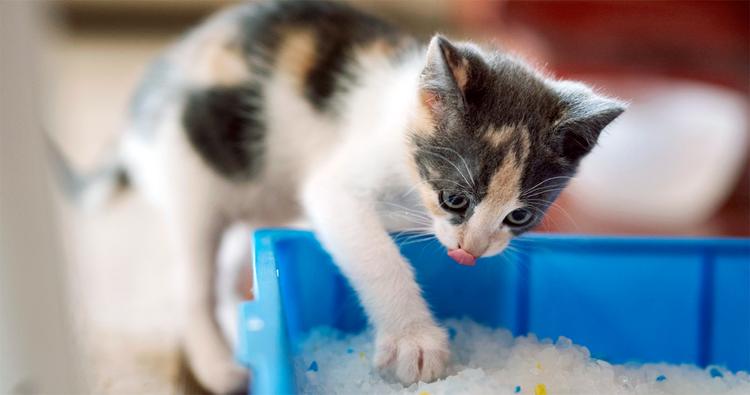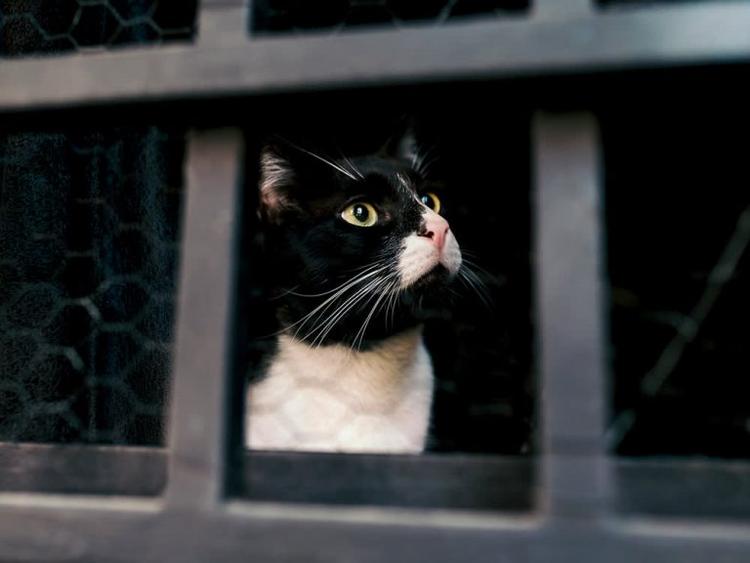by Adopt a Pet, | January 8, 2024

AnnaStills / Shutterstock
You can calm an anxious cat by using calming products, providing more playtime, giving them a quiet space that they can have all to himself where they won’t be bothered by any people or pets like inside a nice closet or a spare room, and offering interactive toys to keep your cat’s brain busy. Some are surprised to learn that cats experience anxiety. Some cats may be naturally anxious, while others may develop anxiety following an injury or a change in routine or household dynamic. Since it can be hard to read cats, the only way to recognize their anxiety is typically through their behavior.
Why Your Cat May Be Anxious
Even the slightest change can cause anxiety for your cat. Common reasons for a cat to feel anxious include a new family member (either human or pet), rearranging furniture, moving to a new house, or other things that are new. When possible, offering slow introductions can help reduce anxiety.
Signs Of An Anxious Cat
Some cats spend most of their day snoozing under the bed, and that is not necessarily a sign of an anxious cat—although hiding can be a symptom. Others spend hours darting back and forth from one end of the house to other. Again, that doesn’t necessarily mean your cat is anxious, but it could be a sign. The following behaviors are signs your cat may have anxiety:
Failing to use the litter box
Aggression towards other household pets or people
Excessive meowing
Hiding
Excessive cleaning (often resulting in bald spots)
No social interaction
Destructive behavior
Note that these behaviors can signal something other than anxiety but, no matter the cause, they shouldn’t be ignored—especially if the behavior came on suddenly.
If you suspect anxiety, the first stop should be to your vet to rule out an underlying medical cause. Once that’s ruled out, you can move on to finding a way to help your pet overcome their anxiety. Methods that may bring success include:
Spending More Time with Your Cat
If your cat is a social cat who enjoys interacting with you, spend time each day brushing your cat, playing with them, and cuddling them. This quality time ensures your cat is getting enough exercise and mental stimulation—both of which may help with anxiety.
Improve The Cat’s Environment
Does your pet have a kitty condo and other place to escape to either up high or under something, and plenty of escape routes from rooms so they don’t feel cornered or trapped? Do they have lots of toys, and their own litter box (rule of thumb is one box per cat plus one additional box)? If not, adding these items can help with anxiety.
Calming Products
Many pet owners have had great success with calming collars and diffusers, which can be purchased at most pet supply stores.
Medication
In extreme cases and when nothing else works, your vet may suggest a medication to help alleviate your cat’s anxiety.
You may need to involve your vet or an animal behaviorist, but the good news is that with a little patience and some trial and error, you’ll likely be able to find a solution that works for your pet.

Adopt a Pet
Related articles

Behavior & Training
Why Is My New Cat Hiding?

Behavior & Training
Why Won’t My Cat Use the Litter Box? Solving Litter Box Problems

Behavior & Training
What Are Some Effective Cat Anxiety Treatments?

Behavior & Training
Why Is My Cat Suddenly Chewing On Everything?
Your cat may be suddenly chewing on everything due to anxiety, a medical condition, or even just because they realized it’s an activity they enjoy.

Rehome
The 5 Top Reasons Cats Are Taken to Shelters (And How to Prevent Surrendering Them)
Nobody wants to part with their beloved pet — and you don’t have to. Here are some practical solutions to consider before assuming your cat isn’t working out.

Behavior & Training
How to Get a Cat to Like You (and Eventually Love You)
Is your new cat giving you the cold shoulder? Here’s how to get them to warm up.

Behavior & Training
Kitten Constipation: Why Hasn’t My New Kitten Pooped Yet?
From diet to health concerns, here’s a guide to how to know for sure, what may be causing this issue in your cat, as well as some potential treatments for it.

Behavior & Training
How Do I Stop My Indoor Cat From Escaping?

Behavior & Training